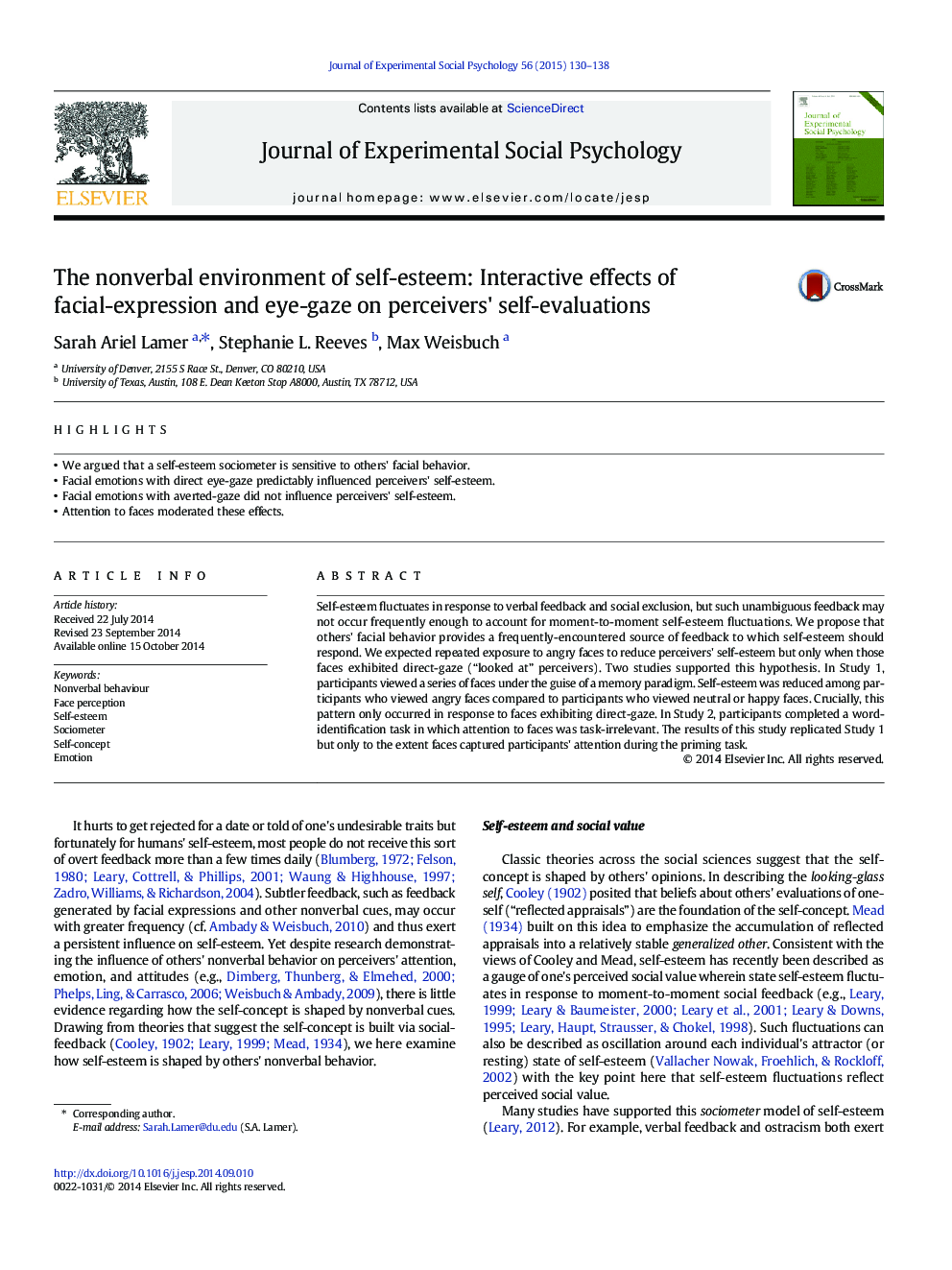| Article ID | Journal | Published Year | Pages | File Type |
|---|---|---|---|---|
| 947730 | Journal of Experimental Social Psychology | 2015 | 9 Pages |
•We argued that a self-esteem sociometer is sensitive to others' facial behavior.•Facial emotions with direct eye-gaze predictably influenced perceivers' self-esteem.•Facial emotions with averted-gaze did not influence perceivers' self-esteem.•Attention to faces moderated these effects.
Self-esteem fluctuates in response to verbal feedback and social exclusion, but such unambiguous feedback may not occur frequently enough to account for moment-to-moment self-esteem fluctuations. We propose that others' facial behavior provides a frequently-encountered source of feedback to which self-esteem should respond. We expected repeated exposure to angry faces to reduce perceivers' self-esteem but only when those faces exhibited direct-gaze (“looked at” perceivers). Two studies supported this hypothesis. In Study 1, participants viewed a series of faces under the guise of a memory paradigm. Self-esteem was reduced among participants who viewed angry faces compared to participants who viewed neutral or happy faces. Crucially, this pattern only occurred in response to faces exhibiting direct-gaze. In Study 2, participants completed a word-identification task in which attention to faces was task-irrelevant. The results of this study replicated Study 1 but only to the extent faces captured participants' attention during the priming task.
